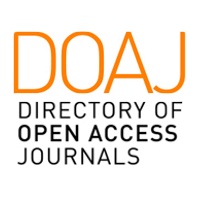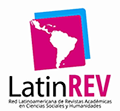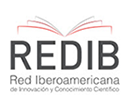Sobre o bom e o mau professor
a identidade profissional docente
DOI:
https://doi.org/10.31639/rbpfp.v14i31.645Keywords:
Identidade docente, Formação realista-reflexiva, Identidade profissionalAbstract
This research aims to explore how teachers reflect on professional identity from the contrast of characteristics between good and bad teachers. The research has a qualitative character and had a sample of 62 teachers. They participated in an online teacher training that was conceived in the reflective-realist model. Data was collected from the discussion forums of this course. Then, the data were analysed by content analysis as supported by the Grounded Theory. Results indicate the domains of self-image, commitment and perception of the task are more cited by the participants. The characteristics of the good/bad teacher pointed out by the research participants should be analyzed carefully, serving as a starting point for deeper reflections on teaching.
Downloads
References
ALSINA, Á. Hacia una formación transformadora de futuros maestros de matemáticas: avances de investigación desde el modelo Realista-Reflexivo. Unipluriversidad, vol. 19, n.o 2, p. 60-79, 2019. Disponível em: <https://doi.org/10.17533/udea.unipluri.19.2.05>. Acesso em: 17 Jan. 2022.
ALSINA, Á. [et al.]. Marcas de autorregulación para la construcción del perfil docente durante la formación inicial de maestros. Revista Complutense de Educación, vol. 30, n.o 1, p. 55-74, 2018. Disponível em: <https://doi.org/10.5209/rced.55466>. Acesso em: 17 Jan. 2022.
BARDIN, L. Análise de conteúdo. Lisboa: Edições 70, 1977.
CARLOMAGNO, M. C.; ROCHA, L. C. Como criar e classificar categorias para fazer análise de conteúdo: Uma questão metodológica. Revista Eletrônica de Ciência Política, [S.l.], v. 7, n. 1, jul. 2016. ISSN 2236-451X. Disponível em: <https://revistas.ufpr.br/politica/article/view/45771/28756>. Acesso em: 07 Mar. 2022.
CARLOTTO, M. S.; PALAZZO, L. S. Síndrome de burnout e fatores associados: um estudo epidemiológico com professores. Cadernos de Saúde Pública, Rio de Janeiro, v. 22, n. 5, p. 1017-1026, 2006. Disponível em: < https://www.scielo.br/j/csp/a/kyyFwZLMGHSNpBC5gpNrq4r/?lang=pt>. Acesso em: 20 Jun. 2022.
ENGELBERTINK, M. M. J. [et al.]. The reflection level and the construction of professional identity of university students. Reflective Practice: International and Multidisciplinary Perspectives, p. 1-13, 2020. Disponível em: <https://doi.org/10.1080/14623943.2020.1835632>. Acesso em: 16 Maio 2022.
FIORENTINI, D.; CRECCI, V. Desenvolvimento profissional docente: um termo guarda-chuva ou um novo sentido à formação?. Formação Docente – Revista Brasileira de Pesquisa sobre Formação de Professores, [S. l.], v. 5, n. 8, p. 11–23, 2013. Disponível em: <https://revformacaodocente.com.br/index.php/rbpfp/article/view/74> . Acesso em: 02 Jun 2022.
GARCIA, M. M. A.; HYPOLITO, A. M.; VIEIRA, J. S. As identidades docentes como fabricação da docência. Educação e Pesquisa. São Paulo, v.31 n.1, pp.45-56, jan./mar. 2005. Disponível em: <https://www.scielo.br/j/ep/a/h98PzLy4947pWTcYgFpNL7P/?format=pdf&lang=pt>. Acesso em: 17 Jan. 2022.
HANNA, F. [et al.]. Domains of teacher identity: A review of quantitative measurement instruments. Educational Research Review, vol. 27, n.o June 2018, p. 15-27, 2019. Disponível em: <https://doi.org/10.1016/j.edurev.2019.01.003>. Acesso em: 16 Maio 2022.
IZA, D. F. V [et al.]. Identidade docente: As várias faces da constituição do ser professor. Revista Eletrônica de Educação, v. 8, n. 2, p. 273-292, 2014. Disponível em: <https://www.reveduc.ufscar.brindex.php/reveduc/article/viewFile/978/339>. Acesso em: 17 Jan. 2022.
KOLB, D. A. Experiential learning: experience as the source of learning and development. Englewood Cliffs, NJ: Prentice Hall, 1984.
KORTHAGEN, F. A. J. La práctica, la teoría y la person en la formación del profesorado. Revista Interuniversitaria de Formación del Profesorado,vol. 68 n° 24(2), p. 83-101, 2010. Disponível em: <https://dialnet.unirioja.es/servlet/articulo?codigo=3276048>. Acesso em: 20 Maio 2022.
NÓVOA, A. Formação de Professores e a profissão docente. In: NÓVOA, Antônio (Org.). Os professores e sua formação.Lisboa: Don Quixote, 1992, p. 15-34.
RODRIGUES-SILVA, J.; ALSINA, Á. Formação docente no modelo realista-reflexivo. Revista Educação em Questão, vol. 59, n.o 60, p. 1-28, 18 ago. 2021. Disponível em: <https://periodicos.ufrn.br/educacaoemquestao/article/view/24757>. Acesso em: 09 Out. 2022.
RODRIGUES-SILVA, J. Formação realista-reflexiva baseada na obra “A arte de ser um perfeito mau professor”. 1. ed. Belo Horizonte: IFMG, 2020.
RODRIGUES-SILVA, J. Síndrome de burnout em professores brasileiros. Poíesis Pedagógica, vol. 18, p. 143-159, 2020. Disponível em: <https://doi.org/10.5216/rppoi.v18.65418>. Acesso em: 15 Jun. 2022.
SCHÖN, D. A. The Reflective Practitioner: How Professionals Think in Action. New York: Basic Books, 1983.
SHULMAN, L. S. Those who understand: Knowledge growth in teaching. Educational Researcher, vol. 15, n.o 2, p. 4-14, 1986.
STRAUSS, A.; CORBIN, J. Grounded theory methodology: An overview. Handbook of qualitative research. Thousand Oaks, CA, US: Sage Publications, Inc, 1994. p. 273-285.
ZEICHNER, K. M. Uma análise crítica sobre a “reflexão” como conceito estruturante na formação docente. Educação & Sociedade, Campinas: CEDES, v. 29, n. 103, p. 535-554, maio/ago 2008. Disponível em: <https://www.scielo.br/j/es/a/bdDGnvvgjCzj336WkgYgSzq/?format=pdf&lang=pt>. Acesso em: 05 Set. 2021.
Downloads
Published
How to Cite
Issue
Section
License
Copyright (c) 2022 Andressa Carvalho da Silva, Jefferson Rodrigues-Silva (Autor)

This work is licensed under a Creative Commons Attribution-NonCommercial-ShareAlike 4.0 International License.
Copyright belongs exclusively to the authors. The license rights used by the journal are the Creative Commons Attribution-NonCommercial 4.0 International (CC BY-NC-SA 4.0) license: sharing (copying and distribution of material in any medium or format) and adaptation (remixing), transformation and creation of material from the content are allowed.































